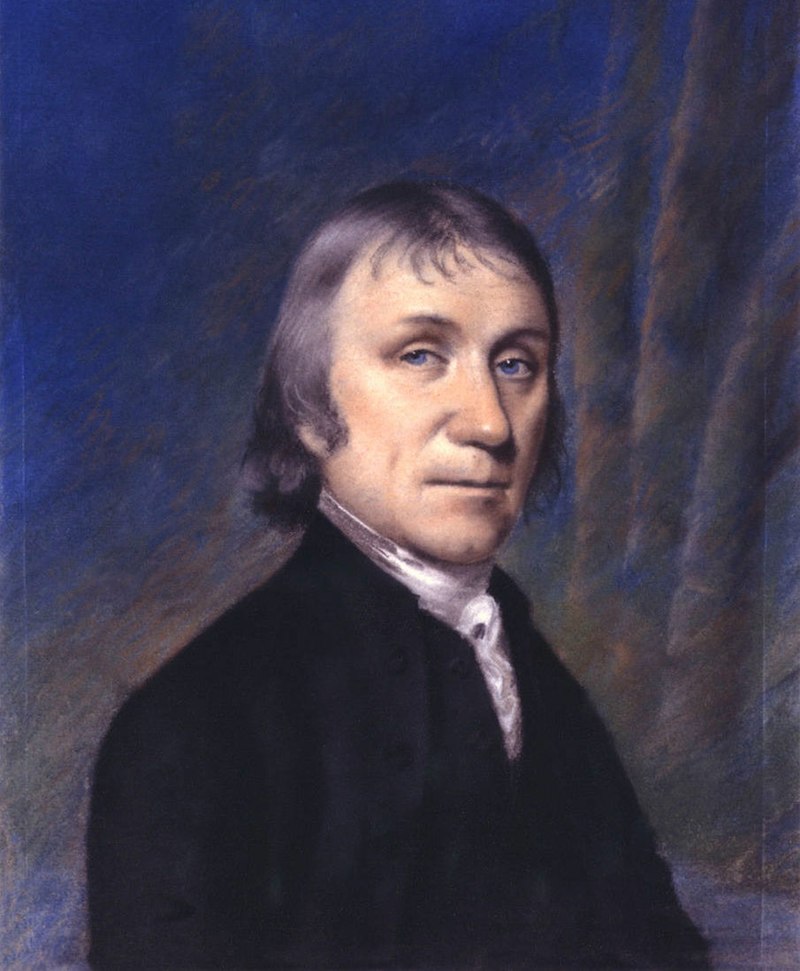I am once again
tackling a figure whose work lies on the borders of philosophy and
science. I haven't read any one book from him, but instead, I have
investigated a selection, the title of which (Priestley on science,
philosophy and politics) reflects the variety of the thinker's
interests. Because Priestley was also interested of religion, one
might say that he played altogether four different roles.
Starting first from
the role of a scientific investigator, we may note that Priestely is
famous as one of the first people to separate oxygen from air. But
Priestley's discovery is an important indication how different it is
to do an experiment and to interpret it correctly, as he did not
believe he had found a new element – instead, he thought he had
managed to purify air from phlogiston, the element that supposedly
caused all phenomena involving fire. Priestely quickly noted that
this purified air was more invigorating than ordinary air and he also
noted that plants appeared to emanate such air.
In addition to
dabbling with scientific experiments, Priestly was also a historian
of science and worked on an history of electrical studies. Still,
perhaps most interesting work of Priestely on the topic of science
are his plans for systematising scientific research. Priestly
suggests that instead of founding huge societies responsible for all
kinds of scientific study, there should be many small societies
specialised for a small subfield in science and responsible for
collecting funding for that field. In effect, Priestly is suggesting
an idea common these days, that universities should concentrate their
research on their strong areas.
Priestley's
innovative skills were not restricted to mere research politics, but
he was, secondly, an eager political thinker. His model of good
society was clearly based on United States of America, as he was a
stout defender of republicanism and demanded the right of citizens to
have an extended field of action, in which state should have no say
at all – Priestly goes even so far as to suggest that education
should be no business of the state. Furthermore, Priestley speaks
vehemently against any privileged class or nobility, except in case
of such a class serving the needs of state. And while Priestley did
condemn rebellions, he also noted that fight against tyranny was no
true rebellion. In line with Priestley's rather Republican ideal of
society is his insistence that criminals should be punished hardly,
in order to deter anyone from committing a crime. Ironically,
Priestly congratulates USA of not being a colonial power and of
never falling into a civil war – a mere century would have proven
him wrong.
An important part of
Priestley's liberal ideal of state is a demand that all religious
sects should be tolerated. This is an important element in his third
role as religious thinker. Priestley was a unitarian, who thought
that Christ did not have a divine nature. Indeed, his philosophical
views went even farther away from the traditional religious views. For
instance, Priestly denied the possibility of spontaneously working
will, but insisted that all actions require some motive – even the
act of going against a motive is never unmotivated. Somewhat
surprisingly, in addition to basing this thesis on the universal
validity of causal principle, Priestley also uses a religious
argument – God could not foresee things ahead, if the events of the
world would not work in a strictly deterministic manner. Furthermore,
he also notes that morals would not work without complete
determinism, since a randomly acting person could not be improved in
any manner – she could always accidentally act in a completely
different manner.
In addition to being
a determinist, Priestly was also a materialist. Or, to put it better,
he did not believe that there was any wide cleft between material and
spiritual phenomena. Matter was not a plenuum or completely solid,
but must have been full of emptyness, since it e.g. could be a medium
for movement of light. And if matter was really not material in the
brute sense of the word, Priestley argued, why could we not say that
so-called soul is also made of matter?

Ei kommentteja:
Lähetä kommentti